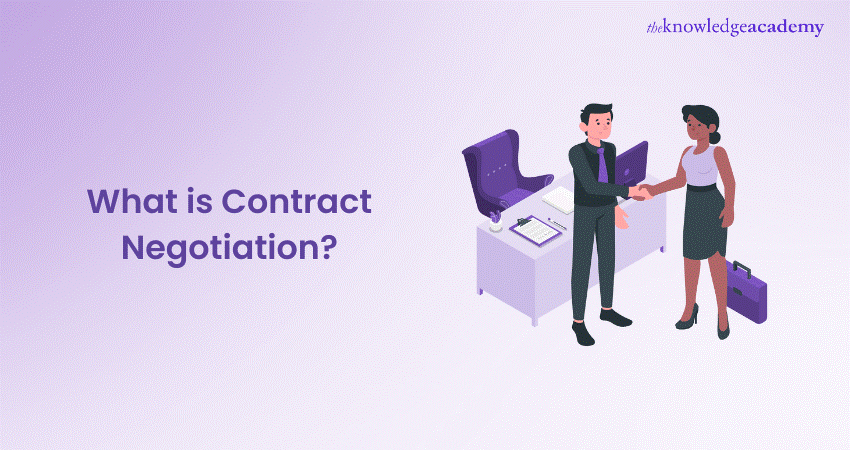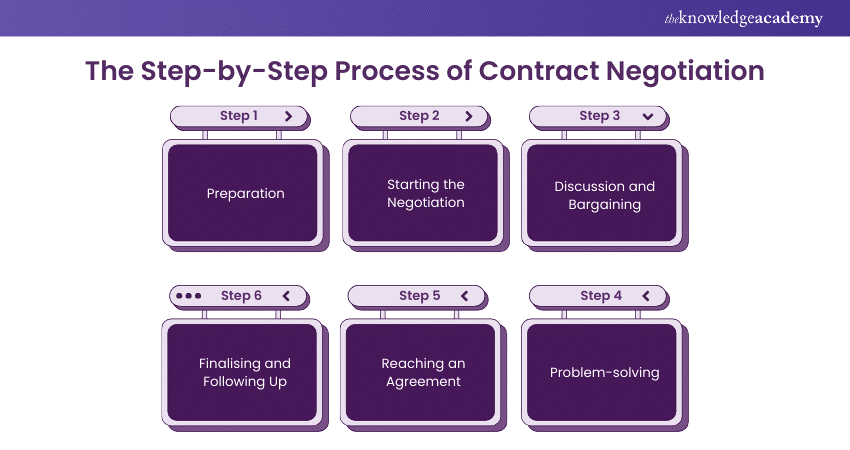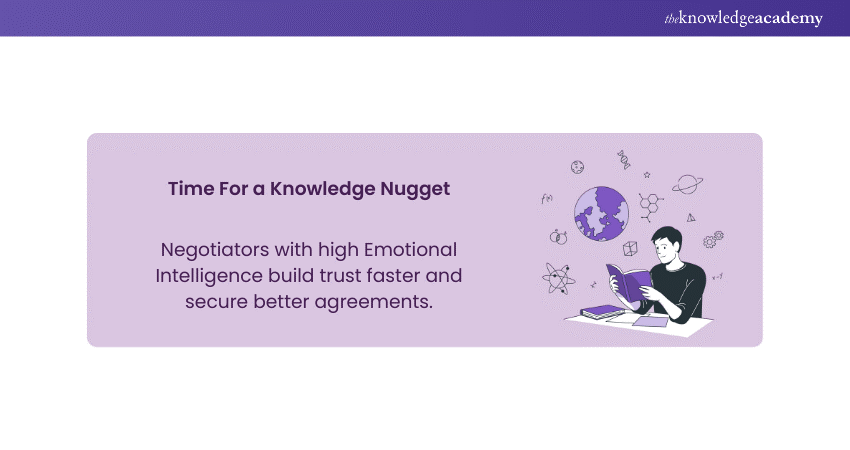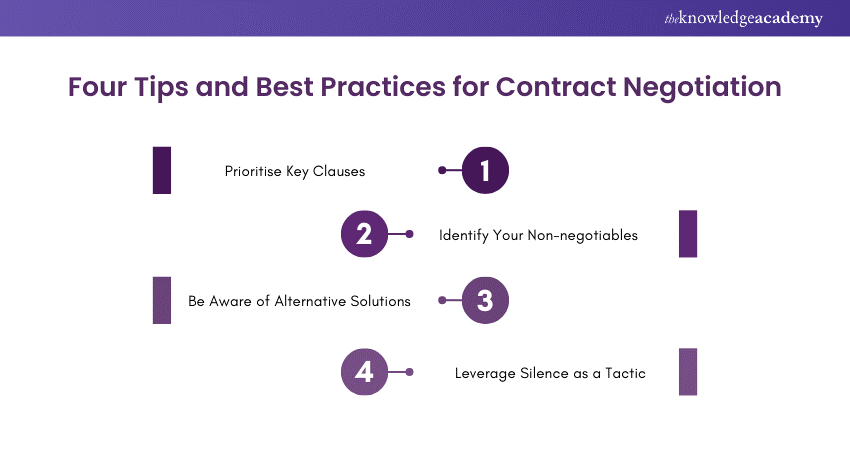We may not have the course you’re looking for. If you enquire or give us a call on +08000201623 and speak to our training experts, we may still be able to help with your training requirements.
Training Outcomes Within Your Budget!
We ensure quality, budget-alignment, and timely delivery by our expert instructors.

Contract Negotiation is the methodology of discussing and finalising the terms and conditions of an agreement between two or more parties to ensure mutual understanding and satisfaction. It is a critical step in forming legally binding contracts, providing an opportunity to address concerns, clarify expectations, and establish a framework that benefits all stakeholders.
The goal of Contract Negotiation is to create a clear and equitable agreement that aligns with the objectives of all parties involved while minimising risks and ambiguities. This process often involves defining key terms, identifying potential challenges, and finding solutions to meet mutual interests. Read this blog to learn more!
Table of Contents
1) What is Contract Negotiation?
2) Importance of Contract Negotiations
3) The Step-by-step Process of Contract Negotiation
4) Key Strategies for Successful Contract Negotiation
5) Essential Skills for Effective Contract Negotiation
6) Four Tips and Best Practices for Contract Negotiation
7) When is the Right Time to Negotiate a Contract?
8) Conclusion
What is Contract Negotiation?
Contract Negotiation is the technique where two parties reach a final conclusion pertaining to profitability, distribution, and other key terms post-discussion or series of meetings. It can be thought analogous to bargaining in the market for a particular product and finalising the price—but at a business level.
Contract Negotiation forms the bedrock for the success of any business or enterprise with a shared profit. Not implementing it can result in financial losses, strained partnerships, legal disputes, increased costs, and reduced profitability.
According to a recent report , ineffective negotiations can lead to businesses overpaying for supplies, with as little as a 1% decrease in supplier costs potentially increasing profits by up to 4%
Importance of Contract Negotiations
Contract Negotiations are crucial for establishing mutual agreement between both parties, minimising the chances of conflict and confusion in later stages of business. Here's some more relevance of Contract Negotiations, a key part of Contract Management, given in the below sections:
1) Addressing Needs and Concerns:
a) Leads to legally sound, practical, and fair contracts.
b) Reduces the likelihood of disputes.
c) Fosters more robust, more transparent relationships.
2) Defining Scope of Work, Deliverables, and Timelines:
a) Sets realistic expectations.
b) Prevents misunderstandings.
c) Facilitates performance management and accountability.
3) Aligning with Strategic Goals:
a) Ensures every aspect of the contract supports the parties’ objectives.
b) Contributes to the successful execution of the agreement.
4) Mitigating Potential Risks:
a) Identifies and addresses issues related to liability, compliance, and unforeseen circumstances.
b) Protects the interests of all parties.
c) Includes provisions for handling disputes, amendments, or terminations.
5) Enhancing Overall Value:
a) Incorporates flexible terms for future changes.
b) Supports long-term collaboration.
c) Reinforces positive working relationships.
6) Creating Solid, Functional Agreements:
a) Ensures clarity, manages risks, and provides flexibility.
b) Leads to successful and harmonious business relationships.
c) Secures fair and advantageous agreements for long-term success and cooperation.
Enhance your skills with our Contract Management Training. Learn the best practices, legal aspects, and negotiation strategies. Start mastering contracts today!
The Step-by-step Process of Contract Negotiation
The Contract Negotiation comprises primarily of four steps. Below, we have explained those for successfully implementing the Contract Negotiation system.

Step 1: Preparation
Begin talking about the contract, gather information and pointers, and analyse the counterpart's likely demands and requirements. This will help you present a successful negotiation.
Step 2: Starting the Negotiation
Begin the conversation on a positive note. Highlight what you hope to achieve from the negotiation. Gently add more intriguing pointers. These pointers will later form the umbrella for deeper and in-depth discussions.
Step 3: Discussion and Bargaining
Talk about the details of the contract. Share your ideas, listen to what the other party has to say, and maintain your composure during the process. You can discuss different options to reach a central ground that will benefit both parties.
Step 4: Problem-solving
After that, address any issue(s) or disagreement(s) that arises during the discussion. Work together to negotiate better and mutually beneficial decisions. This step is important as it helps maintain transparency and clarity during successive stages.
Step 5: Reaching an Agreement
Once both parties agree on the terms & conditions, set up the final contract details. Make sure everything is clear, glitch-free, and accepted
Step 6: Finalising and Following Up
Finally, sign the contracts and perform the necessary formalities. Then, track their implementation and contact them periodically to ensure everything is going according to plan.
Key Strategies for Successful Contract Negotiation
Successful Contract Negotiation depends largely on how you present your information, your communication, and effective planning. Below, we have described those Contract Management Strategies in detail.
1) Understand Your Objectives and Needs
Ensure transparency in your objectives and needs. This will help you stay aligned and consistent on your goals.
2) Ask Insightful Questions
Always ask questions to learn what the other party requires and clarify any points thereafter. This will ensure both sides remain on the same page.
3) Practice Active Listening
Listen thoroughly to what the other party is saying. Show them your interest by acknowledging their points in between. This will help establish trust and the ability to discuss concerns mutually without confusion.
4) Communicate Clearly and Concisely
Express your ideas directly without using jargon or complicated phrases in your language. There might be instances where the counterparty is from a different cultural background. Clear communication ensures both sides understand each other precisely and are doubt-free.
5) Avoid Confrontation
Refrain from creating conflicts during the discussion. Frame a cooperative attitude to maintain good relationships and foster more successful negotiations in the future.
Transform your corporate career with Business Contract Law Training – register now!
Essential Skills for Effective Contract Negotiation
To be an effective contract negotiator, you must practice specific skills. These skills will also help you in the long run during your career. Here are those skills mentioned in the below sections:
1) Strong Communication
Strong communication skills will help you present your ideas and thoughts clearly and concisely so the other party (despite being from different ethnic backgrounds) can understand.
2) Emotional Intelligence

Emotional intelligence allows one to understand the intent behind the other party's demands and decisions. This allows one to develop a personal bond and trust with the other party.
3) Strategic Planning
Strategic planning helps you create a roadmap that will help you easily and effectively handle the complexities of discussions.
4) Decision-Making Ability
Your decision-making ability will ensure the counterparty knows exactly what you want from the negotiation and how your decisions can impact their mutual relationship.
Elevate your contract administration abilities- sign up for our Contract Management Certification Training!
Four Tips and Best Practices for Contract Negotiation
Besides the above insights, certain tips and tricks are there to help you navigate the nuance of Contract Negotiation effectively. Check the below sections to explore those crucial tips and tricks.

1) Prioritise Key Clauses
Talk about the most crucial pointers you want the other party to agree upon. This will make sure nothing is hidden and that the counterparty remains satisfied and clear after the meeting.
2) Identify Your Non-Negotiables
Identify which terms or conditions you cannot compensate. These are your deal breakers, so remain firm with them but make sure to not to emphasise them forcibly.
3) Be Aware of Alternative Solutions
Prepare alternative solutions along with your demands to address any issue that may come up during the discussion.
4) Leverage Silence as a Tactic
Use your silence as a key strategy to encourage your counterpart to speak more about the topic and reconsider their position.
Advance your skills in contract compliance with our Commercial Contracts Management Training – sign up right away!
When is the Right Time to Negotiate a Contract?
There is no standard rule for knowing the right time to negotiate a contract. These pointers guide you towards your decision-making process.
1) Preparation and Understanding:
a) Both parties should be prepared.
b) A clear understanding of needs and goals.
c) Thorough research and clear definition of objectives.
2) Timing of Negotiation:
a) After initial discussions, establish mutual interest.
b) Before any formal commitments are made.
c) Opportunity to address priorities and concerns without pressure.
3) Readiness for Detailed Discussions:
a) Align timing with the readiness of both parties.
b) Delay if one party is not fully prepared or significant decisions are pending.
c) Ensure all relevant information is available.
4) Investment and Informed Decisions:
a) Both sides should be equally invested.
b) Capable of making informed decisions.
c) Crucial for achieving a fair and productive outcome.
Conclusion
We hope you understand "What is Contract Negotiation" and the key tactics to successfully break into this topic. Mastering Contract Negotiation is crucial for successful business relationships and agreements. Take on these practices to negotiate fair and advantageous contracts and set the stage for future achievements and long-term business goals.
Excel in contractor oversight techniques – kickstart your Managing Contractors Training today!
Frequently Asked Questions

You can improve your Contract Negotiation skills by mastering clear communication, active listening, and asking insightful questions. Practice staying calm under pressure and understanding both parties' mutual needs to reach better agreements.

Effective negotiation techniques include active listening, asking probing questions, maintaining clarity, and using strategic pauses. Try to focus on understanding the other party’s perspective and finding mutually beneficial solutions.

The Knowledge Academy takes global learning to new heights, offering over 30,000 online courses across 490+ locations in 220 countries. This expansive reach ensures accessibility and convenience for learners worldwide.
Alongside our diverse Online Course Catalogue, encompassing 19 major categories, we go the extra mile by providing a plethora of free educational Online Resources like News updates, Blogs, videos, webinars, and interview questions. Tailoring learning experiences further, professionals can maximise value with customisable Course Bundles of TKA.

The Knowledge Academy’s Knowledge Pass, a prepaid voucher, adds another layer of flexibility, allowing course bookings over a 12-month period. Join us on a journey where education knows no bounds.

The Knowledge Academy offers various Contract Management Courses, including Contract Negotiation Training, Contract Management Certification and Managing Contractors Training. These courses cater to different skill levels, providing comprehensive insights into the Most Asked Contract Manager Interview Questions and Answers.
Our ISO & Compliance Blogs cover a range of topics related to ISO standards and regulatory compliance, offering valuable resources, best practices, and industry insights. Whether you are a beginner or looking to advance your compliance management skills, The Knowledge Academy's diverse courses and informative blogs have got you covered.
Upcoming ISO & Compliance Resources Batches & Dates
Date
 Procurement Training & Certification Course
Procurement Training & Certification Course
Fri 17th Jan 2025
Fri 21st Feb 2025
Fri 4th Apr 2025
Fri 6th Jun 2025
Fri 25th Jul 2025
Fri 7th Nov 2025
Fri 26th Dec 2025







 Top Rated Course
Top Rated Course



 If you wish to make any changes to your course, please
If you wish to make any changes to your course, please


